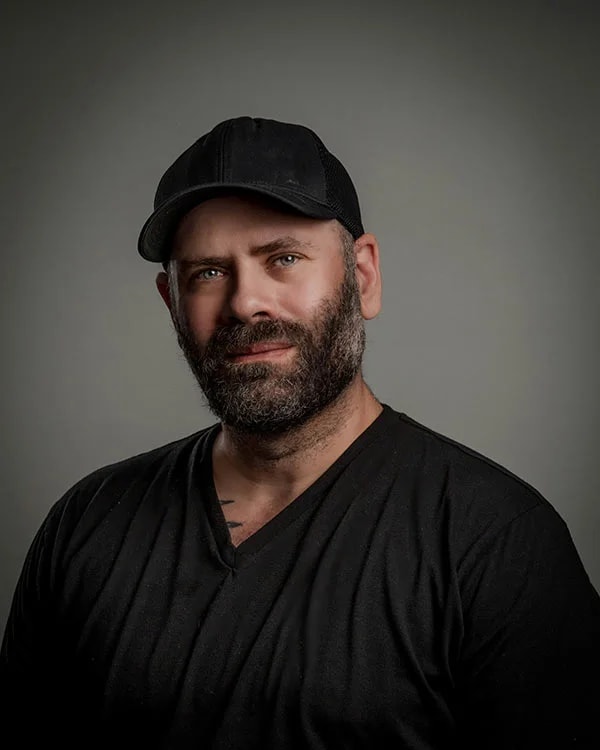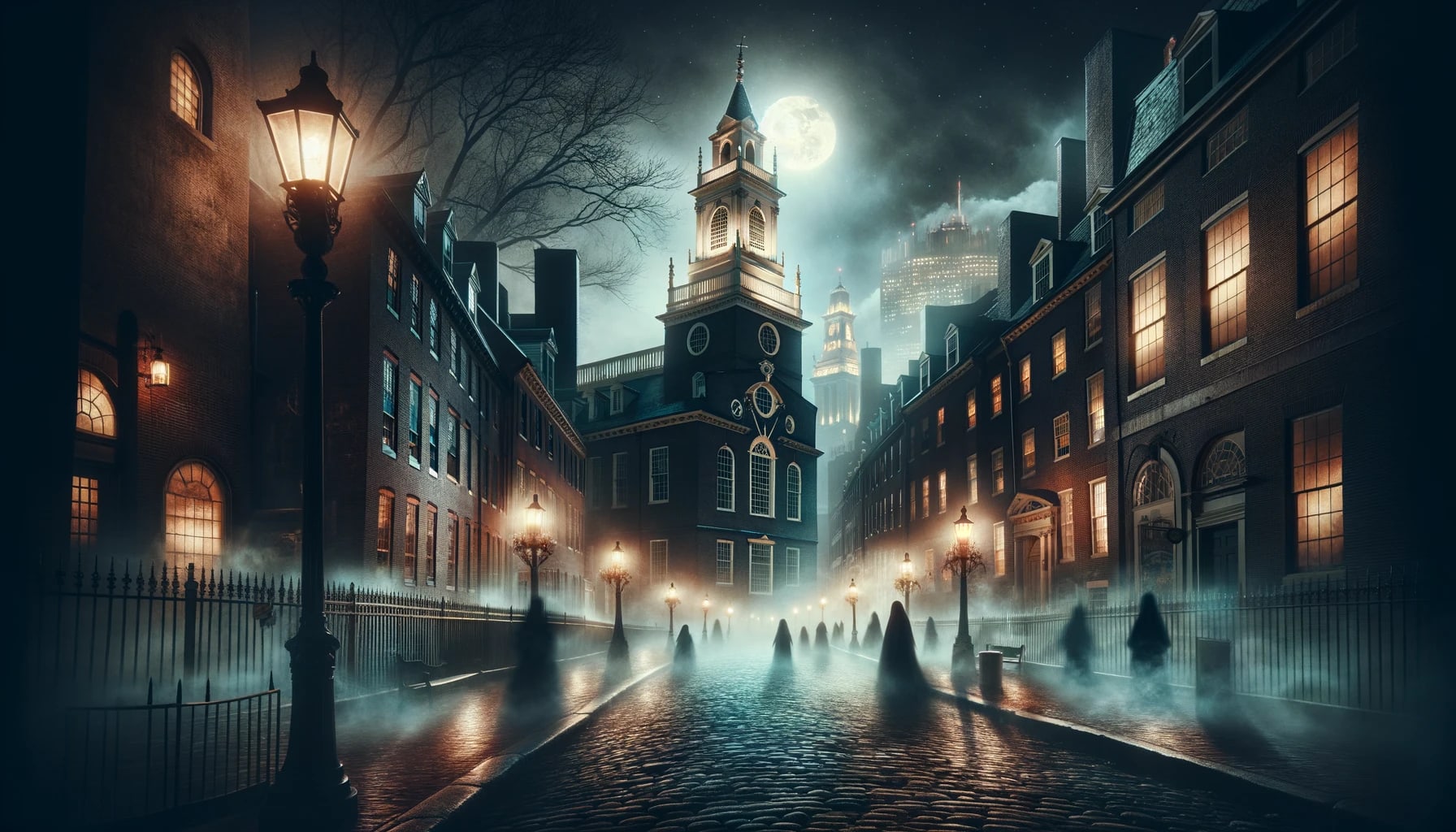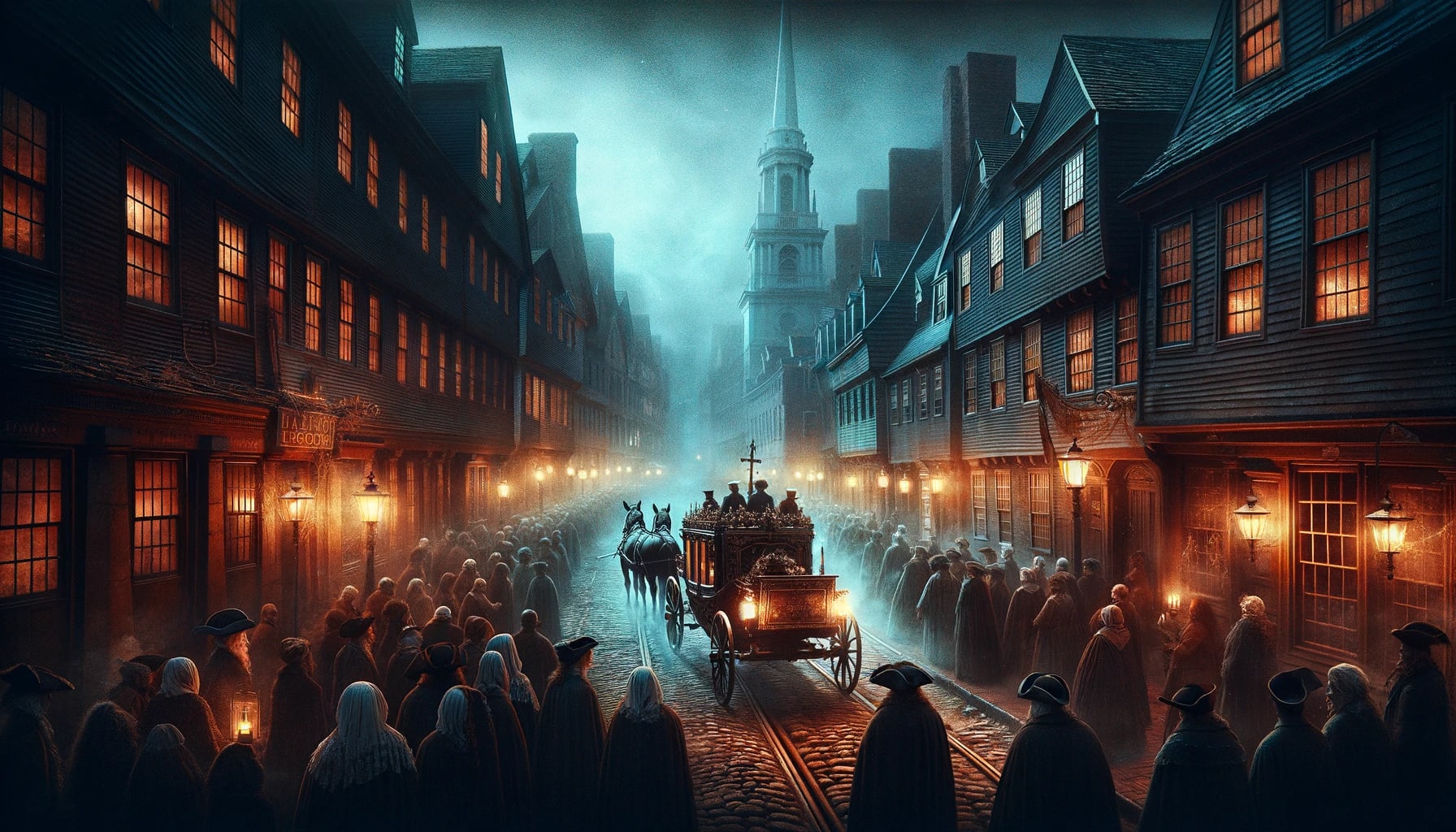The Hooper-Lee-Nichols House in Cambridge, Massachusetts, is a popular stop for those venturing out of Boston in pursuit of the paranormal.
The 17th-century structure has had many lives, serving as a lodge, tavern, rental property, and ultimately, Cambridge Historical Society headquarters. A lot has happened in this house, with its tragedies producing scars (and ghosts) that will never entirely disappear.
Did you know?
- The body of Elizabeth Hooper, the home's first owner, was found wrapped in a blanket inside her ill-reputed tavern, a mysterious death that has yet to be solved.
- A young girl, or rather, her spirit, walks the Hooper-Lee-Nichols House. After stepping on lit fireworks during a family Fourth of July celebration, she caught a deadly infection and passed away. Locals believe she has not left the house since.
- Dr. John White Webster, the man convicted of murdering and dismembering his colleague, Dr. George Parkman, was living in the historic house in 1849, the same year the crime was committed.
The Residents of Hooper-Lee-Nichols House
El científico Asesino de Harvard
A 2014 article by the Boston Globe titled Oldest Home Housed Oldest Profession, certifies how, in 1849, Dr. John White Webster rented the Hooper-Lee-Nichols House, shortly before enacting one of the goriest murders Cambridge had ever seen.
After Harvard Medical School professor, Dr. George Parkman, went missing in November of 1849, speculations about his disappearance began to surface.
But no one could have predicted what really happened to Parkman, especially in the mid-19th century. Cambridge - and the world - was shaken when the doctor's body was found dismembered - and partially burned - in Dr. Webster's Harvard laboratory.
It was nearly impossible for us to think that a man like Dr. Webster, could be guilty of so atrocious a crime as that of murdering a brother man. But it has been proved otherwise, the crime is traced and fixed upon him, and he must suffer the awful consequences which the law, under the sanction of the Executive, demands at his hand.
—Fall River Monitor, 1850
Following a tiresome 12-day-long trial, Webster confessed to murdering George Parkman in a fit of rage, and he was executed in August 1850. Many believe that Dr. Webster was framed by the janitor who found the body. Was the doctor innocent or was he indeed as wicked as he was painted out to be?
Owner Never Leaves
The dwelling we now call the Hooper-Lee-Nichols House, was once a modest "first-period" farmhouse, the second home built in Cambridge. If these walls could talk, they would have plenty of ghastly details to tell, starting with the story of its first owners.
The house was initially built for prominent Cambridge physician Richard Hooper. Unfortunately, Dr. Hooper passed away in 1691, shortly after the construction of the estate was completed.
Following her husband's death, Elizabeth Hooper was faced with severe financial troubles, forced to take in boarders, and convert her home into a tavern. As far as what went on in the establishment is unknown. It was likely questionable, however, since it soon earned a reputation for being a filthy, embarrassing business.
Shortly after (Dr.) Hooper's death, however, his family fell on very hard times--how or why, we don't know--deepening the mysteries surrounding him
—Rediscovering the Hooper-Lee-Nichols House, The Cambridge Historical Society, 2010
In 1701, Elizabeth's body was found wrapped in a sheet inside the house that lodgers and tavern-goers had collectively wrecked. The mysterious circumstances surrounding her death have only added to the already complex macabre history of the home. Was she murdered, or did she succumb to an unknown illness?
Elizabeth's troubled spirit is said to walk the halls still, hindered by her tragic end. Some say they have witnessed her gliding across the floor in the same white sheet her corpse was found in.
Playing Cards
Legend has it that a group of five Hessian soldiers - Germans employed by the British during the American Revolutionary War (1775-1783) - haunt the Hooper-Lee-Nichols House. According to several accounts, the fierce European ghosts are often caught playing cards together in the library.
It is believed that the soldiers were buried near the home sometime during the conflict, as the property was, at the time, owned by a British Loyalist. The Hessian spirits are said to have emerged in 1915 after a library was constructed over their final resting place.
Author Sam Baltrusis, in his book Ghosts of Cambridge: Haunts of Harvard Square and Beyond, confirms there are no historical records to validate the supposed German soldier burials on the property.
However, the property was so large - roughly forty-five acres - that there is a possibility that Hessians set up camps (and were possibly killed) somewhere near the house.
A Fourth Of July Turns Grim
In 1850, the house was rented to George and Susan Nichols, who performed some of the most extensive renovations ever made to the building.
The Nichols were celebrating the Fourth of July at their new residence, showcasing the remodel, when their young granddaughter stepped on lit fireworks. The open wound became infected, and she passed away shortly after.
From then on, the spirit of the Nichols granddaughter has been haunting the house, responsible for objects moving from one place to the other without explanation. Some have also reported hearing subtle weeps they attribute to the young girl's presence.
Is the Hooper-Lee-Nichols House Really Haunted?
In his book, Baltrusis narrates the conversation he had with Gavin W. Kleespies, executive director of the Cambridge Historical Society. Kleespies, who worked in the house since the early '90s, certified that he indeed thought the house was haunted back then, having experienced first-hand, strange paranormal activity.
Creepy stuff happened. Doors opened and closed. Objects would mysteriously move to different locations. If you were here by yourself, you would hear noises.
—Gavin W. Kleespies in Ghosts of Cambridge, written by Sam Baltrusis.
Kleespies admitted he has since changed his opinion about the hauntings as he had not witnessed doors opening and closing by themselves or the unexplained relocation of objects in several years. He added that "Maybe the house is happier?"
The resident fellows, college students who sleep near the Historical Society's archives, seem to disagree. According to Kleespies, the students have approached him on various occasions detailing their strange encounters with ghosts in the house.
The executive director believes that, if any part of the Hooper-Lee-Nichols House is haunted, it's the archives. Here, pictures, records, and even locks of hair are kept, preserving the remnants of a bygone society.
As the second-oldest dwelling in the city, The Hooper-Lee-Nichols House has seen its fair share of misfortune. Since harboring the Cambridge Historical Society, the formerly doom and gloom structure has been revitalized, shining as a significant part of history, instead of a house of horrors.
Visit the Hooper-Lee-Nichols House for a look into the gruesome yet fascinating history of a 17th-century gem.
Seeing the Hooper-Lee-Nichols House
The Hooper-Lee-Nichols House is currently open to the public and serves as the headquarters for the Cambridge Historical Society. Guided tours are offered weekly.
Location
159 Brattle Street Cambridge, MA 02138

The colonial mansion that has harbored spirits for over 300 years

Period rooms where furniture moves on its own



